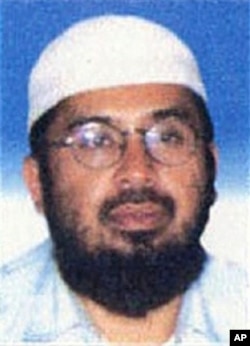A U.S. diplomat says no decision has been made on Indonesia's request on the trial of a leading Indonesian terrorism suspect. Recent news reports say the United States has rejected the request to send Riduan Isamuddin, known as Hambali, to Jakarta for trial and plans to try him in Washington.
Tristram Perry, a spokesman for the U.S. Embassy in Jakarta, on Tuesday discounted news reports that Riduan Isamuddin would be tried in Washington, D.C.
"We understand that the (U.S.) Attorney General has made no decision on the forum for this case, let alone on where such case would be tried if it were sent to federal court," he said.
Perry did not confirm reports that the U.S. has rejected a request from the Indonesian National Police to extradite and try the man known as Hambali in Indonesia.
Indonesia Police Colonel I Ketuk Untung Yoga confirmed that Indonesia has asked for Hambali's extradition, or at least permission to question him.
He says there is a request for deeper investigation to reveal the terrorist network. But he says no official decision has yet been made.
Hambali is held in the U.S. military's detention center at Guantanamo Bay, Cuba.
He is believed to be a main link between al-Qaida and Jemaah Islamiyah, the Southeast Asia terror group blamed for the 2002 bombing on Bali that killed 202 people.
Former U.S. President Bush confirmed that following his capture in Thailand in 2003, Hambali was held in secret CIA prisons. U.S. intelligence officials have linked him to the attempted assassination of a Philippine ambassador and the coordinated Christmas Eve 2000 bombings of Indonesian churches.
In 2007, Hambali appeared before a preliminary military tribunal and denied any connection with al-Qaida.
There is concern that trying Hambali in a U.S. civilian court will limit the evidence allowed to be used against him, and give him an international forum to advocate his extremist views. There is also concern that Hambali may receive a lighter sentence if he is extradited and tried in Indonesia.
Abu Bakar Bashir, an accused Jemaah Islamiyah (JI) leader, received only a 30-month sentence in Indonesia after being convicted of conspiracy related to the Bali bombings. He was released after serving a little more than a year. However, other JI members, including those involved in bombings in Indonesia, have received lengthy prison terms or death sentences.






